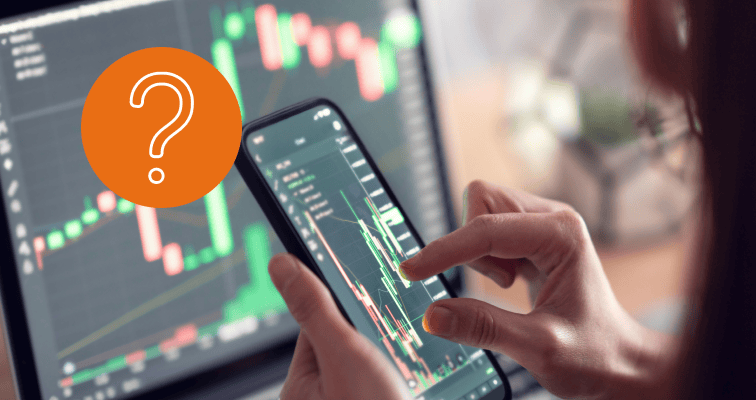Investing in IPOs – when a company makes their stocks available for the first time – offers opportunities and risks. Investors should consider how it works, and what it means for them.
An IPO, Initial Public Offering, involves a private company opening itself up to outside investors. IPOs can be undertaken by new start-up companies, or firms that are long-established. In either case the existing owners of the company give up some of their stocks in return for investor cash.
Here, we will discuss what the issuing company and new investors get out of an IPO. How the process works and what investors should consider when investing in one.
What is an initial public offering (IPO)?
An IPO, or Initial Public Offering, is used when a company makes their stock available on a public exchange for the first time. This means outside investors can buy shares and become part-owners of the company.
Any type of company in any industry can launch an IPO, but the process has come to be associated with growing companies where the founders and seed investors are willing to give up some of their ownership rights in their firm in exchange for cash to invest in future plans.
The size of an IPO is gauged by calculating the amount of stock listed by the share price once the stock starts trading. IPOs vary in size but can include mega-deals which generate a large amount of capital, such as the $29.4 billion raised by Saudi Aramco (SAOC) when it listed in 2019.

What does an IPO mean for Investors?
An IPO offers investors something fresh in the market. They can buy stocks in individual companies and stock indices may also be updated to include the newly listed company.
There is typically a good deal of interest in the run up to the date at which an IPO will take place. The managers of the IPO will disclose in the offer document a range of prices which they expert the new stock to start trading at. Once the stock is publicly tradable market forces will determine if the IPO is deemed a success or not.
If the stock price rises this can signify the stock itself gaining investor interest, but also that there is bullish sentiment in the equity market. If the price slumps, to below the issue price, then that is a negative signal for the stock and potentially the wider sector.
Ways for Investors to Approach an IPO
Patience can be a virtue for investors considering an IPO. Sometimes, the initial price will correct after the initial hype, as some investors seek to “sell the news.” This can present more attractive buy-in opportunities down the line, as the IPO stabilises in price.
On the other hand, with limited market history to draw technical analysis from, it can be hard to ascertain the fair market value of the company issuing an IPO. This can lead to initial price volatility, and even the most popular companies can fall in price once the stock goes public.
Furthermore, companies that issue an IPO will likely not have as much liquidity as more established companies. This can imply lesser ability to pay debt obligations or liabilities, increasing the potential risk attached to companies that have recently launched an IPO.
Tip: Generally speaking, IPOs are considered fairly high-risk investments.
How does an IPO work?
The IPO process starts when the issuing company asks an investment bank to analyse the
Once this is done, the company will need to draw up a prospectus for potential
The pre-marketing stage can see companies sell stock to institutions, which underwrite a large chunk of the IPO, and receive a discounted price in exchange.
On the day that the shares go public, they become ordinary stock that can be traded in the usual way.

How to invest in an IPO
When news breaks about a company considering an IPO, their stock will not yet be on the market. While investors may think this means they cannot yet purchase stock, this is not always the case.
In practice, investing is not as difficult as it may appear to be. There is a set period when the public can register their interest in an IPO stock.
At the end of this period, the company will calculate how many people have asked to buy stock, and if the offer is oversubscribed, they may give each purchaser a percentage of what they asked for.
Tip: To find inspiration, you could do an IPO search or view IPO calendars to find companies of interest.
On the day that the shares go public, retail and institutional investors can invest or trade the stock in the usual, market-ordinary way.
Investors should also bear in mind that there may be a waiting period or lock-up period involved, so it can make sense to wait until the insiders sell their shares before investing.
What are the benefits and drawbacks to companies?
While an IPO can bring considerable benefits to companies, it can also present significant drawbacks. It is important to understand why a company might seek to launch an IPO, and understand the potential implications the process might have on them.
- IPOs are a way for companies to quickly raise a large amount of capital from public investors.
- Public funding may provide company founders with an exit strategy that rewards them for their work and early investment.
- An IPO might make it easier for companies to gain additional credit, as a public firm will typically have more transparent processes and figures.
- Running an IPO can be extremely expensive, with underwriting fees of up to 7% of the gross proceeds.
- Given the time that it takes to complete the IPO process, it can distract the company from their main business operations for a prolonged period of time.
- IPO regulations may force companies to reveal business practices and ideas that they would rather keep confidential. It can subject them to intense public scrutiny.
Important considerations before participating in an IPO
Investors should thoroughly research a company before investing in its IPO, paying particular attention to some of the key tools and indicators that offer well-rounded analysis in spite of limited market history.
The name of the IPO
An IPO prospectus is another tool investors can use to see more than just the IPO share price. This document offers insights into a company’s overall vision, and details who its executive leaders are.

Final thoughts
IPOs are an important element of the stock market, and can present fresh opportunities to invest in new companies at a relatively low price.
There is always a degree of uncertainty around IPOs, however, and investors should remain cautious and not simply assume that any IPO is going to be a profitable investment.
Build your investment knowledge further with the eToro Academy.
FAQs
- Can I lose money when participating in an IPO?
-
Yes, just as when investing in any stock, there is a probability of losing money when participating in an IPO. Investing in IPOs bears high risk, as the difficulties in accurately assessing and valuing a company may result in the initial price being too high, and thereby falling to a lower value than you paid for it.
- What is over-allotment?
-
Over-allotment refers to the option which allows underwriters to sell more shares than initially planned in an IPO. This can also be known as a “greenshoe” option. Usually, underwriters are allowed to sell up to 15% more shares than the original amount issued. This option offers some degree of flexibility in terms of setting the final size of the offer, as the demand can be hard to predict.
- Are stocks the only assets that could go through IPOs?
-
While shares of a company are the most common assets to go through IPOs, cryptoassets can also become available to the public in a similar way. When a new cryptoasset is launched to the public, it’s called an ICO, (Initial Coin Offering). Examples of successful ICOs include the launch of Block.One, which raised $4 billion.
This information is for educational purposes only and should not be taken as investment advice, personal recommendation, or an offer of, or solicitation to, buy or sell any financial instruments.
This material has been prepared without regard to any particular investment objectives or financial situation and has not been prepared in accordance with the legal and regulatory requirements to promote independent research. Not all of the financial instruments and services referred to are offered by eToro and any references to past performance of a financial instrument, index, or a packaged investment product are not, and should not be taken as, a reliable indicator of future results.
eToro makes no representation and assumes no liability as to the accuracy or completeness of the content of this guide. Make sure you understand the risks involved in trading before committing any capital. Never risk more than you are prepared to lose.


